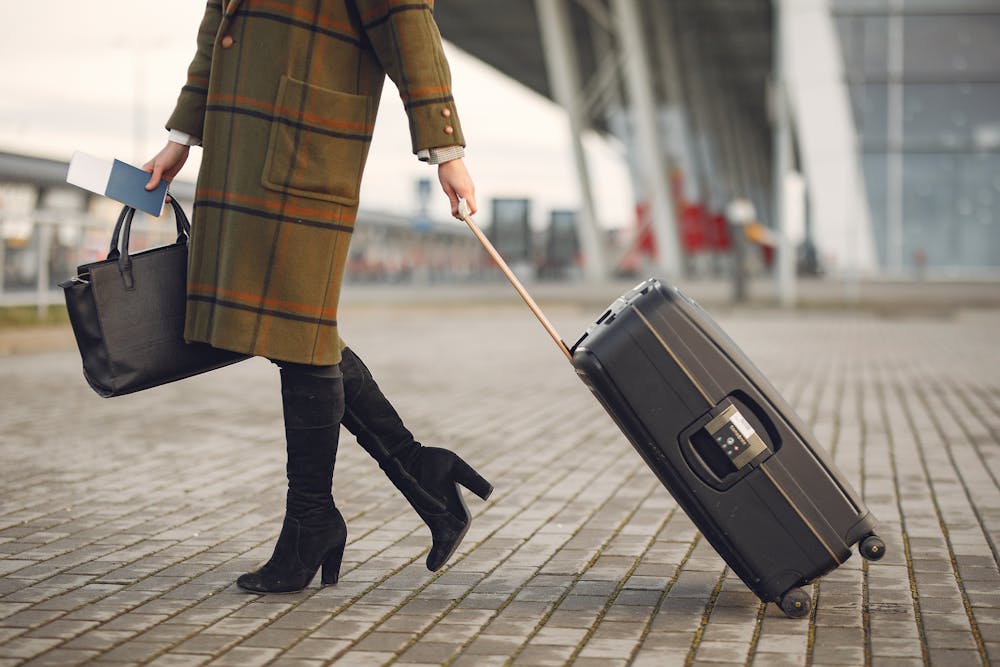When booking a flight, you may notice phrases like “Member of Star Alliance” or “OneWorld Partner” — but what does that really mean? Airline alliances play a major role in how modern air travel works, offering passengers more routes, smoother connections, and extra perks.
Let’s break down what are airline alliances, why they exist, and how they can benefit you.
Check your compensation online.
1. What Is an Airline Alliance?
An airline alliance is a partnership between several airlines that collaborate to offer shared benefits. These alliances allow member airlines to coordinate schedules, share flight routes, and recognize each other’s loyalty programs.
For passengers, this means greater convenience and flexibility — you can book connecting flights across different airlines, earn and redeem miles on any partner, and enjoy smoother transfers between carriers.
2. The 3 Major Airline Alliances
What are the airline alliances?
There are 3 airline alliances, covering most major carriers around the world:
- Star Alliance – The largest and oldest alliance, founded in 1997. Members include Lufthansa, United Airlines, Singapore Airlines, and Air Canada.
- SkyTeam – Formed in 2000, it includes airlines like KLM, Air France, Delta, and Korean Air.
- Oneworld – Established in 1999, featuring British Airways, American Airlines, Qatar Airways, and Cathay Pacific.
Together, these 3 major airline alliances connect over 1,000 destinations in more than 190 countries, making international travel easier.
2.1 Are All Airlines in an Alliance?
No, not all airlines belong to an alliance. Some carriers, especially low-cost airlines, prefer to operate independently to keep prices low and maintain flexibility.
However, even unaffiliated airlines may still partner informally through interline agreements or shared booking platforms.
What are airline alliances? These are groups of airlines that work together to make travel easier for passengers. They share routes, offer smoother connections, and let you earn and use frequent flyer miles across partner airlines.
3. Airline Alliances Benefits
Being part of an alliance provides several advantages for travelers:
- Easier flight connections. Book multi-airline journeys on a single ticket with coordinated schedules.
- Frequent flyer perks. Earn and use miles across partner airlines, maintaining elite status benefits such as priority boarding or lounge access.
- Shared airport lounges. Access to hundreds of lounges worldwide through alliance membership.
- Simplified check-in and baggage transfers. Luggage is checked through to your final destination, even when flying with multiple partner airlines.
- Better rebooking options. If a flight is delayed or cancelled, partner airlines can rebook you more easily.
4. Codeshare Agreements vs. Airline Alliances
While often mentioned together, codeshare agreements and alliances are not the same.
A codeshare agreement is a partnership between two airlines for specific routes — one airline sells seats on another airline’s flight under its own flight number. An alliance, on the other hand, is a global network of multiple airlines collaborating on a wide scale, covering loyalty programs, schedules, and customer service.
In short: every alliance includes codeshare agreements, but not every codeshare is part of an alliance.
Check your compensation online.

Airline Alliances: Air Passenger Rights (Europe)
In Europe, your air passenger rights are protected under EU Regulation 261/2004 (EU261) — even when flying with multiple airlines in the same alliance. This means that if your journey is booked under one ticket and involves partner airlines within an alliance (such as Star Alliance, SkyTeam, or Oneworld), you’re covered as if you were flying with a single carrier.
If one airline causes a delay, cancellation, or missed connection, you may be entitled to compensation of up to €600, as well as a refund if you choose not to travel (in case of flight cancellations and overbookings).
You also have the right to care, which includes meals, refreshments, accommodation (if needed), and rebooking assistance. The key is that all flights must be on one booking — if you booked separate tickets, these protections do not apply.
Air Passenger Rights for UK Airlines
Passenger rights on UK flights and airlines are almost the same as on EU flights.
After Brexit, the UK adopted its own version of the European regulation, known as UK261, which mirrors EU261 in nearly every way. This means that passengers flying from the UK, or on a UK-based airline, are entitled to compensation and care for flight delays, cancellations, and denied boarding under similar conditions.
The compensation amounts, eligibility criteria, and rights to care — such as meals, accommodation, and rebooking — remain practically identical. The main difference is that claims for flights departing from or operated by UK airlines are handled under UK law and enforced by the UK Civil Aviation Authority (CAA) instead of EU authorities.
UK flight compensation is paid in pounds (£).
Read more: Regulation UK261 vs EU261
Air Passenger Rights for Non-EU Airlines
However, there are some exceptions. Not all alliance airlines are based in Europe or the UK, where EU261 and UK261 regulations apply. For example, if you fly to New York on a EU-based airline, but your return flight is operated by a non-EU partner, such as American Airlines, and that flight is delayed, cancelled, or overbooked, you won’t be eligible for EU261 compensation.
However, right-to-care standards may still apply, as the U.S. has its own passenger protection rules for stranded travelers.
Keep in mind that some non-EU countries have their own compensation rules and regulations. Don’t give up on claiming flight compensation — always check whether local laws apply to your situation.
Read more: Flying with a Non-EU Airline: Which Laws Protect You?
What are airline alliances? Airline alliances make travel more efficient and convenient. They allow airlines to coordinate schedules, share routes, and handle connections smoothly, helping passengers reach more destinations with fewer hassles.
Featured photo by Jeffry S.S. from Pexels